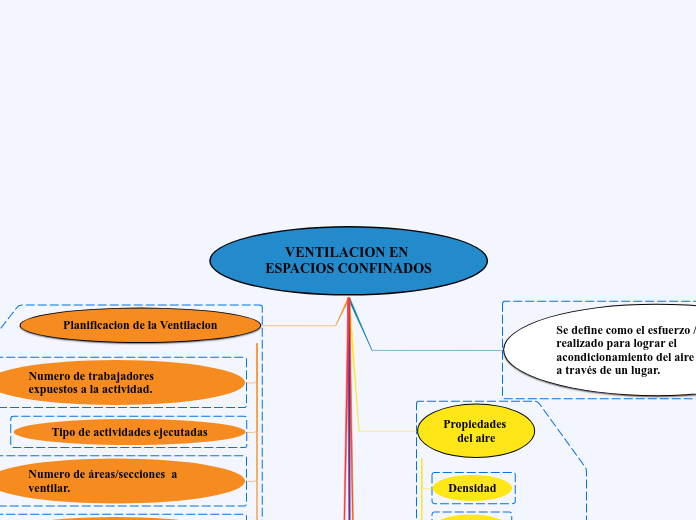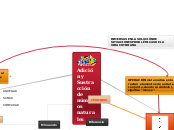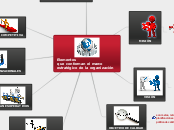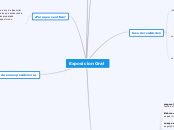VENTILACION EN ESPACIOS CONFINADOS
The first division between continents was made by ancient Greek navigators, who named them 'landmass, terra firma'.
Generally classified by convention rather than any strict criteria, nowadays seven regions are regarded as continents from a geopolitical point of view.
Efectos fisiológicos a diferentes niveles de oxigeno
You can find on this continent:
- the world's largest river as per water volume, the Amazon.
- the highest volcanoes of the world -- Mt. Cotopaxi and Mt. Chimborazo.
- the country, Brazil, which is the largest coffee producer in the world.
- the second-highest mountain range in the world, the Andes.
<6% respiración cesa, seguido de paro respiratorio y muerte en minutos
6-10% nauseas, dificultad de movimientos, perdida del conocimientdo
10-11% respiración acelerada y falta de coordinación, incremento de las pulsaciones, euforia y dolos de cabeza
12- 16% dificultad al respirar, fatiga, extinción de la llama
The world's largest snake and the second-longest lives here.
Name this snake as well as other animals that can be found in South America.
19,5 nivel mínimo de oxigeno para una entrada segura
The largest forest, which covers 30% of South America's total area, is famous for its biodiversity. It’s crisscrossed by thousands of rivers, including the powerful Amazon.
Name this forest as well as its type.
20.9 % nivel normal de oxigeno en el aire
The world's highest uninterrupted waterfall can be found here.
Write down its name, height and the country in which you can find it.
>23% aumento en inflamabilidad de los materiales
There are 12 countries that make up South America.
Name as many of you can! Don't forget about their capitals.
Planificacion de la Ventilacion
North America has five time zones and it is the only continent with every type of climate.
North America was named after the explorer Amerigo Vespucci and is also known as the 'New World'.
The world's largest sugar exporter among the seven continents - Cuba - also called the 'sugar bowl of the world' is located here.
Tiempo promedio de realización de las actividades.
Servicios que se requieren en el sitio de trabajo.
Profundidad y buzamiento del sitio de trabajo.
Numero de áreas/secciones a ventilar.
Tipo de actividades ejecutadas
Numero de trabajadores expuestos a la actividad.
There are 23 countries that make up North America.
Name as many of you can! Don't forget about their capitals.
Aire Atmosférico
Australia is the world's smallest continent and is also known as an 'island continent' as it is surrounded by water on all sides.
It includes 14 countries and it is the least populated continent.
Its name comes from the Latin word 'australis' meaning 'southern' because it lies entirely on the south of the equator.
La composición del aire puro seco en volumen es:
Out of 14, how many countries you can name?
How about these countries' capitals?
Argón, helio, neón, etc. 0,93%
Dióxido de Carbono 0,03%
Oxígeno 20, 95%
Nitrógeno 78,09%
El aire atmosférico es una mezcla de una serie de gases, cada uno de los cuales tiene propiedades físicas y químicas propias.
Objetivos
Of the seven continents of the world, Africa is the second largest.
Africa comprises 54 countries and it is the hottest continent.
The equator passes through the middle of Africa and it receives direct sunlight throughout the year.
The world gets 66% of its chocolate, 50% of the gold and 95% of the diamonds from Africa.
Control de flujos de aire en el sitio de trabajo en en casos de incendios.
What are the major animals found in Africa?
Also, there are a few species that can be found only in Africa.
Name at least 6 of these animals.
Control de las concentraciones de polvos nocivos para la salud y perjudiciales para el funcionamiento de las máquinas.
The largest hot desert in the world which used to be a lush region with many plants and animals.
The current climate makes it a difficult place for any life to exist. It is hot, dry, and windy.
Very hot during the day but the temperature can drop sometimes to below freezing at nights.
It rarely rains, some regions can go years without seeing a drop of rain.
Name this desert.
Diluir y extraer los gases asfixiantes, tóxicos y/o inflamables que se generan
The world's longest river can be found here, famed for its ancient history and the archaeological sites along its shores.
This river gave rise to the early Egyptian civilization.
Name this river and add its length.
Proveer el aire necesario para la vida y normal desempeño de los hombres y buen funcionamiento de las maquinas y equipos.
Out of 54, how many countries you can name?
How about these countries' capitals?
Propiedades del aire
Asia is the world's largest continent of the seven continents in size, as it covers one-third of the earth's surface.
It includes 50 countries, and it is the most populated continent, 60% of the total population of the Earth lives here.
Viscosidad
Temperatura
What are the major animals found in Asia?
Name at least 4 of these animals.
Humedad Relativa
The only man-made structure that can be seen from space is located here.
Name this construction and add other facts about it.
Presión
Volumen
Asia houses the highest point on earth.
Name this summit and write down how tall it is.
Densidad
Name as many as you can out of the 48 countries located in Asia.
Write down the capitals too.
Se define como el esfuerzo / trabajo realizado para lograr el acondicionamiento del aire que circula a través de un lugar.
Antarctica is not only the coldest place on Earth but also the highest, driest, windiest and emptiest, completely covered with ice.
75% of the world's ice and 70% of the Earth's fresh water is located here.
Summer months of December to February give 24 hours of light, while the winter months of late March to late September are pitch dark the whole day.
There are no permanent inhabitants, except for scientists maintaining research stations in Antarctica.









